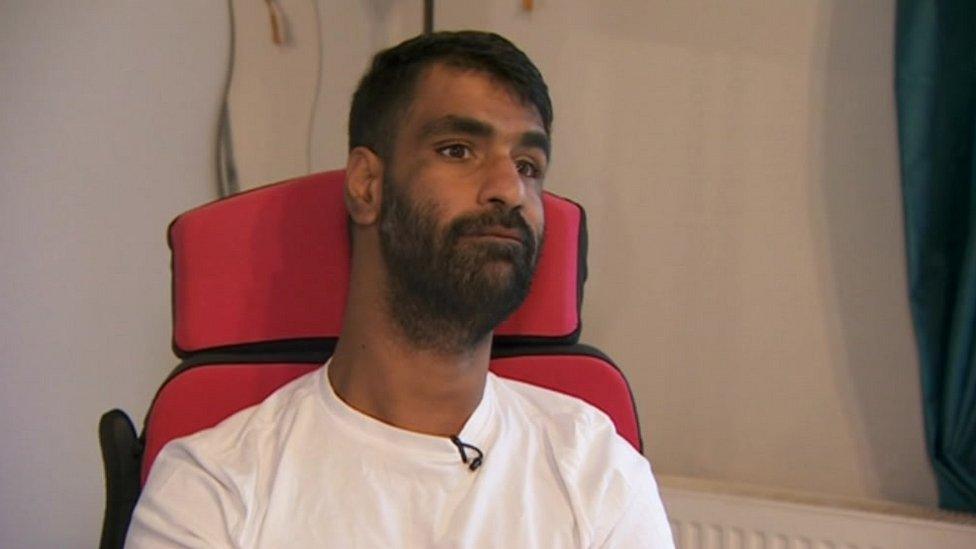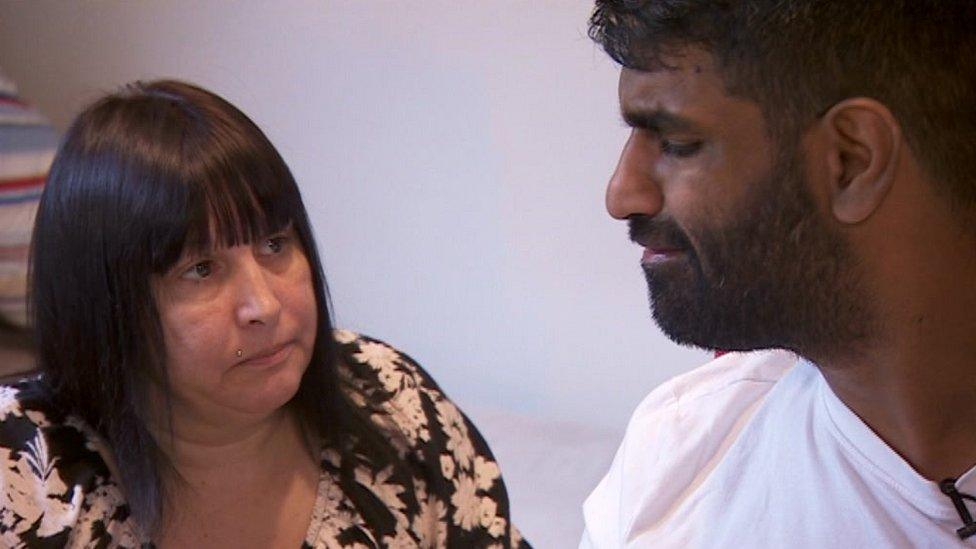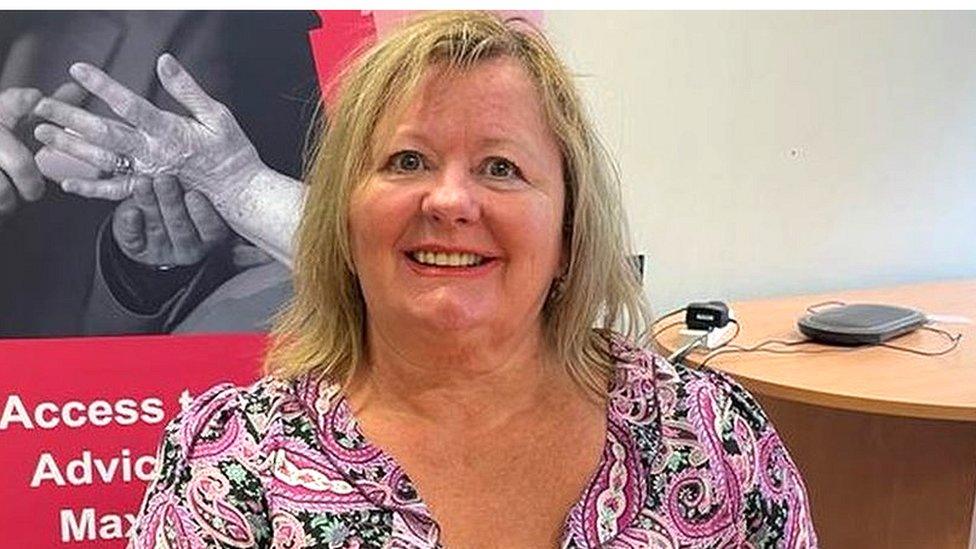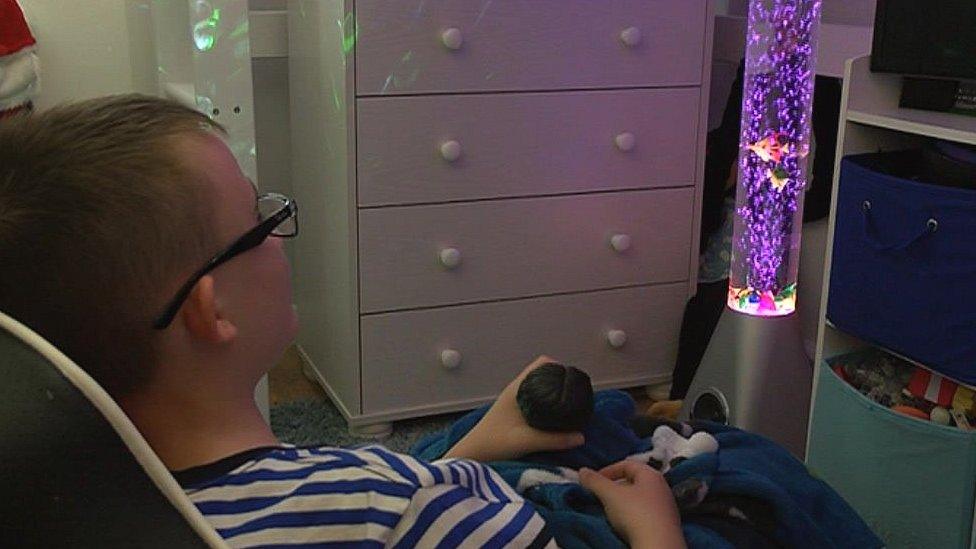Cost of living: Disabled man struggling to pay his carers
- Published

Mr Adam said his disability funding had not increased since 2016
A severely disabled man has said he is struggling to find carers as his funding has not kept pace with inflation.
Imraan Adam, from Derby, has cerebral palsy, uses a wheelchair and has limited use of his arms.
He said his disability funding of £7,600 every four weeks, from the council, has not changed in six years.
He said this meant he could only offer carers minimum wage and had seen his team drop from nine to four.

Ms Hibbitt said she could no longer afford to care for Mr Adam full time
Mr Adam said: "I can't do anything for myself, I need support in every aspect of my life.
"I'm paying my carers minimum wage and a lot of my care team they just can't afford to live on that wage.
"Replacing them has just become a nightmare."
He added: "I feel guilty because I'm asking them to cancel their plans and its just a never-ending cycle."
'So drained'
Marita-Ann Hibbitt used to care for Mr Adam full time - and still does when no one else is available - but said she had no choice but to take another job elsewhere.
"At £9.50 an hour it is just horrendous.
"With inflation, everything is going up and I have food and bills to pay.
"I was upping my hours just to make ends meet but then I was just so drained and I need to be physically fit to be able to give 100% in care."
Investment appeal
Derby City Council said it could not comment on individual cases but issued a statement.
"Any direct payments we make to individuals are based on an assessment of need by one of our social workers.
"There is no legal cap on the amount that can be paid but we have to take into consideration value for money and alternative, more cost effective ways to meet those needs."
Fazilet Hadi, head of policy at Disability Rights UK, said: "Thousands of disabled people across the UK are facing similar problems.
"The investment in care is not enough - that means local authorities don't give people enough to pay for carers.
"That means carers can find other jobs which pay more."

Follow BBC East Midlands on Facebook, external, on Twitter, external, or on Instagram, external. Send your story ideas to eastmidsnews@bbc.co.uk, external.
Related topics
- Published29 August 2022

- Published6 July 2022
